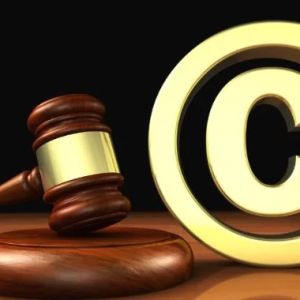What Is Considered Wrongful Termination in the U.S.? Explained with Real Cases
- definition-of-wrongful-termination
- at-will-employment-vs-illegal-dismissal
- major-grounds-for-wrongful-termination
- real-world-case-study-from-texas
- how-to-recognize-if-you-were-wrongfully-terminated
- legal-actions-and-how-lawyers-can-help
- when-to-contact-central-texas-employment-lawyers
1. Definition of Wrongful Termination
Wrongful termination in the U.S. refers to an employer firing an employee in violation of legal rights or contractual terms. While many jobs fall under “at-will” employment—where either party can end the relationship at any time without cause—certain terminations still cross legal lines.
If an employer terminates someone due to discrimination, retaliation, or breach of contract, it's likely considered wrongful termination under federal or state law.
2. At-Will Employment vs. Illegal Dismissal
In most U.S. states, employment is “at-will.” This means that employers don’t need a reason to let someone go. However, “at-will” does not give employers free rein to fire employees for illegal reasons.
Illegal dismissal occurs when the termination violates laws protecting workers from discrimination (e.g., based on race, gender, age), whistleblower retaliation, or protected leave (like the Family Medical Leave Act).
3. Major Grounds for Wrongful Termination
3.1 Discrimination
It is illegal to fire someone based on protected characteristics such as race, religion, sex, disability, or national origin. These protections come from federal laws like Title VII of the Civil Rights Act and the Americans with Disabilities Act.
3.2 Retaliation
Employers cannot fire employees for reporting unsafe working conditions, harassment, or wage violations. Retaliation cases are among the most commonly litigated forms of wrongful termination.
3.3 Breach of Employment Contract
If an employee is under a signed contract that specifies employment terms or job security, being terminated in violation of those terms may constitute wrongful dismissal.
3.4 Violation of Public Policy
Employees cannot be fired for reasons that violate public interest—such as refusing to perform illegal activities or serving on a jury.
4. Real-World Case Study from Texas
Consider the case of Maria G., a warehouse employee in Austin, Texas. She reported a supervisor for sexual harassment. Two weeks later, she was dismissed for “poor performance,” despite consistent positive reviews. Maria contacted Central Texas Employment Lawyers, who helped her file a retaliation claim.
Her case resulted in a confidential settlement and sparked a new internal investigation policy in her former company. Maria’s story is a powerful reminder that knowing your rights matters.
5. How to Recognize If You Were Wrongfully Terminated
Not every firing is unlawful, but certain warning signs may indicate wrongful termination:
- You were fired soon after filing a complaint or taking protected leave
- There is no documented cause for your dismissal
- Other employees in similar roles were not treated the same
- You were let go after refusing illegal or unethical requests
If any of these scenarios sound familiar, it’s time to consider speaking with a legal professional.
6. Legal Actions and How Lawyers Can Help
Employment lawyers can help assess whether your termination was legal or not. They’ll examine your employment records, communications, and any evidence of wrongdoing.
In some cases, they may pursue:
- Filing a complaint with the EEOC (Equal Employment Opportunity Commission)
- Negotiating a settlement
- Filing a civil lawsuit
The legal process can be complex, but having the right advocate is key to achieving justice.
7. When to Contact Central Texas Employment Lawyers
If you believe your firing was unjust or you were pressured to resign under unlawful circumstances, you’re not alone. The experienced attorneys at Central Texas Employment Lawyers are here to help.
From reviewing employment contracts to representing you in court, their team offers comprehensive legal support tailored to your case. They understand the local legal landscape and are committed to protecting worker rights across Texas.
Wrongful termination doesn’t just affect your job—it affects your future. Get the clarity you need and the justice you deserve by seeking professional help today.




